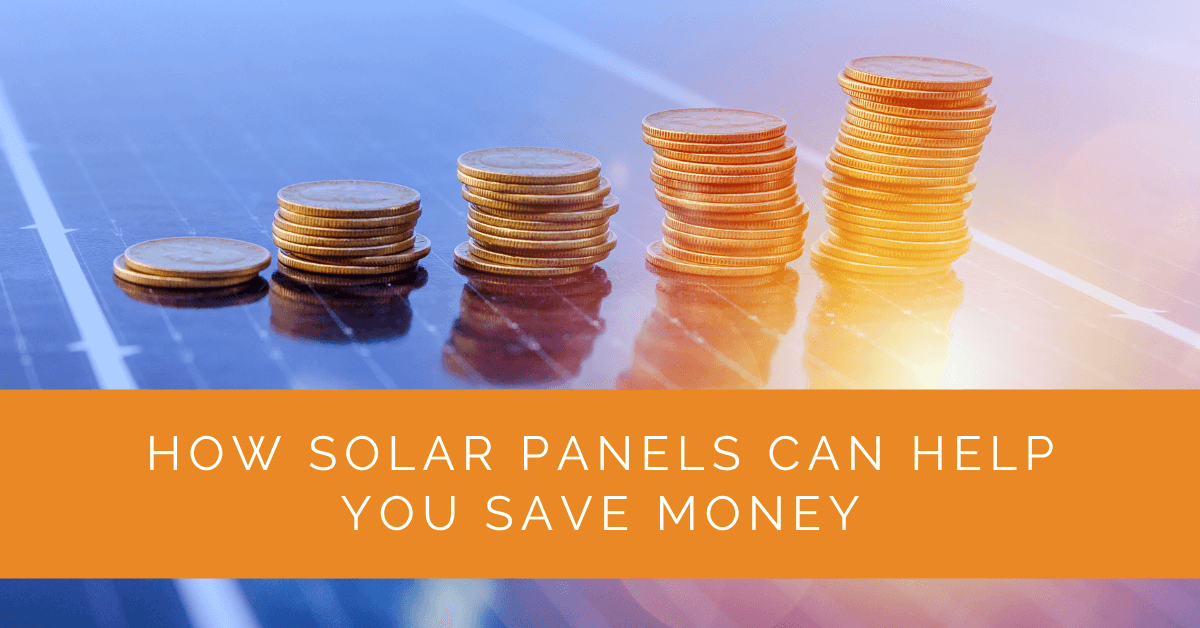As energy costs continue rising, many homeowners and businesses are turning to solar panels to save money on electricity bills. Solar panels not only provide clean and renewable energy but also offer significant long-term savings and financial benefits. This comprehensive guide will explore how solar panels can help you save money, from reducing your monthly energy bills to taking advantage of incentives and tax credits. Let’s dive in and uncover the incredible potential of solar energy in saving you money.
Contents
- 1 Key Takeaways
- 2 Understanding the Cost of Solar Panels
- 3 How Solar Panels Save You Money
- 4 Factors Influencing Solar Panel Savings
- 5 Other Financial Benefits of Solar Panels
- 6 Taking Action: Going Solar and Maximizing Savings
- 6.1 Evaluating Solar Panel Installation Options
- 6.2 Financing and Payment Options
- 6.3 Maximizing Energy Efficiency
- 6.4 Monitoring and Optimizing Performance
- 6.5 Exploring Energy Storage Options
- 6.6 Leveraging Time-of-Use (TOU) Rates
- 6.7 Participating in Energy Trading Programs
- 6.8 Educating Yourself on Solar Policies and Incentives
- 7 Case Study: Achieving Financial Savings Through Solar Panel Installation
- 8 Expert Insights From Our Solar Panel Installers About How Solar Panels Can Help You Save Money
- 9 Experience Solar Excellence with Us!
- 10 Conclusion
Key Takeaways
- Solar panels offer significant financial benefits by reducing electricity bills, protecting against rising energy costs, and increasing property value.
- Factors such as system size, location, and energy storage options influence the savings potential of solar panels, allowing for customized solutions.
- Taking action, such as evaluating installation options, exploring financing, maximizing energy efficiency, and monitoring performance, can maximize savings and contribute to a sustainable future.
Understanding the Cost of Solar Panels
Investing in solar panels requires a comprehensive understanding of the costs to make an informed decision. Let’s dive deeper into the factors that influence the cost of solar panels and explore the various components that contribute to the overall expenses.
Solar Panels Cost and Average Savings
When evaluating the cost of solar panels, it’s important to consider both the upfront expenses and the long-term savings they offer. The cost of solar panels has significantly decreased over the years due to technological advancements and increased market competition. We’ll discuss the average solar panel cost, considering system size, panel efficiency, and installation complexity.
Furthermore, we’ll explore the potential for long-term savings and calculate the average payback period. By considering factors such as energy consumption, electricity rates, and available incentives, we can estimate the amount of money you can save over the lifespan of your solar panel system. Understanding the financial return on investment is crucial for assessing the cost-effectiveness of solar panels and determining the optimal system size for your energy needs.
Financial Incentives and Tax Benefits
Various financial incentives and tax benefits are available to make solar panel installations more affordable and appealing. We’ll delve deeper into these incentives and explore how they can significantly reduce the upfront cost of installing solar panels.
The federal solar investment tax credit (ITC) is a prominent financial incentive. We’ll provide detailed information on how the ITC works, including the percentage of the system cost that can be claimed as a tax credit. Additionally, we’ll discuss state-level incentives, rebates, grants, and renewable energy programs that can further offset the cost of solar panel installations.
Understanding your region’s financial incentives and tax benefits is crucial for maximizing your savings and making the transition to solar power more financially viable.
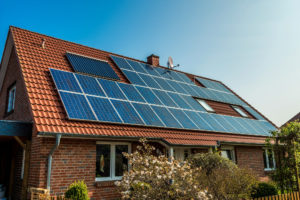
How Solar Panels Save You Money
Solar panels offer a range of financial benefits beyond their initial cost. Let’s explore in greater detail how solar panels save you money and contribute to long-term savings over the system’s lifespan.
Reduced Electricity Bills
One of the primary ways solar panels save you money is by reducing your monthly electricity bills. We’ll delve deeper into the mechanics of solar panels and explain how they generate electricity from sunlight. By harnessing the sun’s power, solar panels produce clean and renewable energy that can offset a significant portion of your electricity consumption.
We’ll discuss the concept of net metering, which allows you to earn credits for the excess energy your solar panels produce and feed back into the grid. These credits can offset your electricity bills when your solar panels may not generate enough energy, such as at night or during cloudy days.
Additionally, we’ll explore the potential for achieving a “net-zero” energy status, where your solar panels produce enough electricity to cover your entire energy consumption. By reducing or eliminating your reliance on grid electricity, you can experience substantial savings over time.
Protection Against Rising Energy Costs
Energy costs tend to fluctuate and increase over time. Solar panels hedge against rising energy costs by providing a stable and predictable energy source. As traditional energy prices continue to rise, the cost of generating electricity from solar panels remains relatively constant.
By generating your electricity, you become less vulnerable to future increases in electricity rates. This stability ensures long-term savings and financial security. We’ll explore the potential cost savings over the lifespan of your solar panel system, considering projected energy cost increases.
Furthermore, by embracing solar power, you contribute to the transition to clean energy sources and reduce your reliance on fossil fuels. This provides financial benefits, aligns with environmental sustainability goals, and promotes a greener future for generations to come.
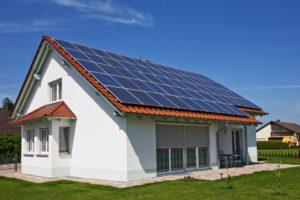
Factors Influencing Solar Panel Savings
Several factors can influence the savings potential of solar panel installations. Let’s delve deeper into these factors to help you understand how to optimize your savings and make informed decisions about your solar panel system.
System Size and Energy Consumption
The size of your solar panel system and your energy consumption patterns significantly determine your savings. It’s important to assess your energy accurately to ensure that the system you install is appropriately sized.
We’ll guide you through evaluating your energy consumption, considering factors such as the number of occupants in your home, your daily energy usage, and any energy-intensive appliances or equipment. By understanding your energy consumption patterns, you can determine the optimal system size that meets your needs while maximizing your savings potential.
Moreover, we’ll discuss load management strategies that can further enhance your savings. This includes identifying peak energy usage times and ways to shift energy-intensive activities to periods when your solar panels produce the most electricity. By optimizing your energy usage, you can minimize reliance on the grid and increase your overall savings.
Solar Potential and Location
The solar potential of your location is another critical factor in determining the savings from solar panels. We’ll delve deeper into assessing your property’s solar potential by considering factors such as sunlight availability, shading, and climatic conditions.
Understanding the solar potential of your location allows you to optimize the placement and orientation of your solar panels for maximum energy production. We’ll provide insights into tools and resources available to assess solar potentials, such as solar irradiation maps and online calculators. By harnessing the full potential of solar energy available in your area, you can maximize the efficiency and effectiveness of your solar panel system.
Furthermore, we’ll discuss the impact of regional policies and regulations on solar panel savings. Certain regions offer additional incentives or favorable net metering policies that can significantly enhance your savings potential. It’s essential to research and understands the local solar policies and incentives available in your area to take full advantage of the financial benefits of solar panels.
Energy Storage and Grid Independence
Energy storage systems, such as solar batteries, can play a crucial role in optimizing your savings and increasing your level of grid independence. We’ll delve into the benefits of energy storage and how it can complement your solar panel system.
Solar batteries allow you to store excess energy generated by your solar panels during the day for use during periods of low solar production or high energy demand. This ensures that you can continue to power your home or business with clean energy even when the sun isn’t shining. We’ll explore different types of solar batteries, their capacities, and their cost-effectiveness. By incorporating energy storage into your solar panel system, you can reduce your reliance on the grid and maximize your energy savings.
Additionally, we’ll discuss grid independence and its financial implications. While remaining connected to the grid provides a safety net, some individuals and businesses may disconnect entirely. We’ll explore the financial considerations of grid independence, including the upfront costs, ongoing maintenance, and the potential for self-sufficiency in generating and consuming your renewable energy.
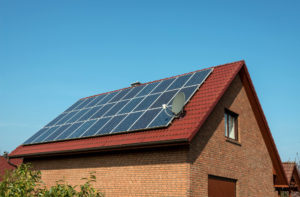
Other Financial Benefits of Solar Panels
In addition to reducing electricity bills and providing long-term savings, solar panels offer a range of other financial benefits. Let’s explore these benefits in greater detail to understand the full extent of the financial advantages of solar panel installations.
Increased Home Value and Return on Investment
Installing solar panels can significantly increase the value of your home. Numerous studies have shown that homes with solar panels have higher property values and can attract potential buyers more easily. We’ll delve into the details of these studies and explain how homebuyers view solar panels as valuable assets. Additionally, we’ll discuss the potential return on investment (ROI) of solar panel installations. By calculating the potential increase in property value and comparing it to the system’s initial cost, you can determine the overall financial benefit of investing in solar panels.
Furthermore, solar panels offer protection against future energy cost increases. As traditional energy prices continue to rise, your reliance on solar-generated electricity remains stable, providing a long-term financial advantage. We’ll delve into the potential savings over the lifespan of your solar panel system, considering projected energy cost increases and the potential for significant cumulative savings.
Solar panels also contribute to environmental savings, and some jurisdictions offer additional financial incentives to promote renewable energy adoption. We’ll discuss programs such as renewable energy credits, green energy certificates, and feed-in tariffs, which can provide additional financial benefits for solar panel owners. These incentives can further offset the cost of your system and enhance your overall financial return.
Moreover, solar panels offer the opportunity to reduce maintenance and operational costs. Unlike traditional energy sources, solar panels require minimal maintenance and have a longer lifespan.
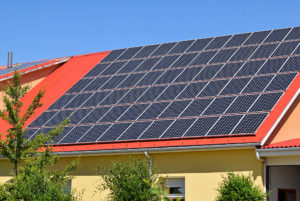
Taking Action: Going Solar and Maximizing Savings
Installing solar panels and maximizing your savings requires careful planning and consideration. Let’s delve deeper into the steps you can take to go solar and optimize your financial benefits.
Evaluating Solar Panel Installation Options
Choosing the right solar panel installation option is crucial for maximizing your savings. We’ll guide you through evaluating different solar installers and selecting the best suits your needs. Factors to consider include installer qualifications, experience, warranties, and customer reviews. Choosing a reputable and reliable installer ensures that your solar panel system is installed properly and operates at its highest efficiency, maximizing your savings potential.
Financing and Payment Options
Financing options are vital in making solar panel installations more accessible and affordable. We’ll explore various financing options, such as solar loans, leasing agreements, and power purchase agreements (PPAs). We’ll discuss the benefits and considerations of each option, including interest rates, repayment terms, and ownership of the system. Understanding the available financing options allows you to choose the one that aligns with your financial goals and maximizes your savings.
Additionally, we’ll guide calculating the potential savings and return on investment for different financing scenarios. By comparing the costs and benefits of each option, you can make an informed decision about the financing arrangement that best suits your financial situation and objectives.
Maximizing Energy Efficiency
Maximizing energy efficiency in your home or business can complement the savings achieved through solar panels. We’ll provide practical tips and strategies to reduce energy consumption and increase efficiency. This includes recommendations for energy-efficient appliances, smart thermostats, LED lighting, insulation, and weatherization techniques. By adopting these energy-saving practices, you can further optimize your overall energy usage and enhance the financial benefits of your solar panel system.
Monitoring and Optimizing Performance
Monitoring the performance of your solar panel system is crucial to ensure it operates at its peak efficiency. We’ll discuss the importance of monitoring tools and systems that provide real-time energy production and consumption data. By analyzing this data, you can identify any issues or inefficiencies in your system and take corrective measures to optimize its performance.
Regularly maintaining and cleaning your solar panels are also essential for maximizing their efficiency and energy production. We’ll provide guidelines for cleaning and maintaining your solar panels to ensure they perform optimally throughout their lifespan. By proactively monitoring and maintaining your solar panel system, you can maximize its financial benefits and ensure long-term savings.
Exploring Energy Storage Options
Integrating energy storage into your solar panel system can enhance savings and energy independence. We’ll explore different energy storage technologies, such as lithium-ion and flow batteries, and discuss their benefits and considerations. Energy storage allows you to store excess energy generated by your solar panels during the day for use during high demand or when the sun isn’t shining. By efficiently storing and utilizing this energy, you can minimize your reliance on the grid and optimize your savings.
Leveraging Time-of-Use (TOU) Rates
Time-of-Use (TOU) rates are a pricing structure offered by some utility companies where electricity costs vary based on the time of day. We’ll discuss how solar panel owners can take advantage of TOU rates by aligning their energy consumption with periods of lower electricity prices. Using appliances, charging electric vehicles, or running energy-intensive tasks during off-peak hours can reduce your energy costs and maximize your savings.
Participating in Energy Trading Programs
In some regions, energy trading programs allow solar panel owners to sell excess energy back to the grid or directly to other consumers. We’ll explore the benefits and considerations of participating in such programs, including the potential for additional income generation. By leveraging energy trading programs, you can monetize the surplus energy your solar panels produce and enhance your financial returns.
Educating Yourself on Solar Policies and Incentives
Solar policies and incentives vary by region and can significantly impact your savings. We’ll provide information on local and federal policies, including net metering regulations, feed-in tariffs, and renewable portfolio standards. Understanding these policies and incentives will help you maximize your financial benefits and ensure compliance with requirements or regulations.
Additionally, we’ll explore the federal solar investment tax credit (ITC) in more detail. This tax credit allows you to claim a percentage of the total cost of your solar panel system as a credit on your federal taxes. We’ll explain the eligibility criteria, the credit percentage, and any upcoming changes to the ITC. Understanding and leveraging these incentives can significantly reduce the overall cost of your solar panel installation and enhance your savings.
Case Study: Achieving Financial Savings Through Solar Panel Installation
Background
At Solar Panels Network USA, our mission is to help homeowners and businesses transition to sustainable energy solutions while achieving significant financial savings. This case study explores a recent project where we successfully implemented a solar panel system to reduce energy costs for a residential client.
Project Overview
Our client, a family of four living in a suburban area, sought to reduce their rising electricity bills and increase their energy independence. After a thorough consultation, we determined that a 7kW solar panel system would best suit their energy needs and maximize their savings potential.
Implementation
Evaluating Energy Consumption
We started by conducting a detailed analysis of the family’s energy consumption patterns using historical data from their electricity bills. This step was critical in customizing our proposal to match their specific usage and lifestyle.
Assessing Solar Potential
Next, we assessed the solar potential of their property. Using advanced tools and solar irradiation maps, we evaluated the sunlight availability, shading factors, and optimal panel placement to ensure maximum efficiency. This assessment provided the foundation for our solar panel configuration.
Installation and Optimization
We installed high-efficiency solar panels and integrated a state-of-the-art energy storage system. The solar batteries allowed the family to store excess energy produced during the day for use during peak hours or cloudy periods. This setup enhanced their grid independence and enabled them to leverage time-of-use rates more effectively.
Results
Immediate Savings
Post-installation, the family experienced a noticeable reduction in their monthly electricity bills. The solar panels produced enough energy to cover the majority of their consumption, and the excess energy was stored in the batteries for later use. This setup not only reduced their reliance on the grid but also provided a buffer against rising energy costs.
Long-term Financial Benefits
The combination of federal and state incentives significantly lowered the upfront costs, leading to a shorter payback period. Additionally, the increased property value attributed to the solar panel installation added to the long-term financial benefits. The family now enjoys stable and predictable energy costs, protected from future increases in electricity rates.
Summary
Through careful planning and execution, Solar Panels Network USA helped a suburban family achieve substantial financial savings with a tailored solar panel system. By leveraging tax incentives, optimizing energy consumption, and incorporating energy storage, we provided a comprehensive solution that not only reduced their electricity bills but also enhanced their energy independence. This case study demonstrates the potential of solar energy to deliver both immediate and long-term financial benefits, reinforcing our commitment to sustainable and cost-effective energy solutions.
Expert Insights From Our Solar Panel Installers About How Solar Panels Can Help You Save Money
As a seasoned solar installer, I’ve seen firsthand how the federal solar investment tax credit can drastically reduce the initial costs of solar panel installation. This tax credit, combined with state-level incentives, can make solar power more accessible and appealing to homeowners.
Senior Solar Installation Engineer
Proper evaluation of a home’s energy consumption and solar potential is crucial. By accurately assessing these factors, we can design a solar system that maximizes savings and efficiency. Our goal is always to ensure the system meets the client’s energy needs while providing the best return on investment.
Lead Solar Consultant
Energy storage systems are a game-changer in the solar industry. By incorporating solar batteries, homeowners can store excess energy for use during peak hours or outages, significantly increasing their grid independence and overall savings.
Solar Energy Storage Specialist
Experience Solar Excellence with Us!
Trust in Solar Panels Network USA, where our seasoned experts deliver top-quality solar solutions for homes and businesses nationwide. With a legacy of countless successful installations and a commitment to sustainable energy, we’re your reliable partner in the solar journey. Ready for a brighter, eco-friendly future? Call us now at (855) 427-0058 and harness the power of the sun!
Conclusion
Solar panels offer many financial benefits that can save you money in the long run. By reducing your electricity bills, taking advantage of incentives and tax credits, protecting against rising energy costs, and increasing your property value, solar panels provide substantial savings and contribute to a cleaner and more sustainable future. Going solar is an investment that benefits your finances, positively impacts the environment, and supports renewable energy. Embrace the power of solar panels and unlock the potential to save money while making a meaningful difference.
About the Author
Solar Panels Network USA stands at the forefront of solar energy solutions, driven by a team of seasoned solar engineers and energy consultants. With over decades of experience in delivering high-quality solar installations and maintenance, we are committed to promoting sustainable energy through customer-centric, tailored solutions. Our articles reflect this commitment, crafted collaboratively by experts to provide accurate, up-to-date insights into solar technology, ensuring our readers are well-informed and empowered in their solar energy decisions.

